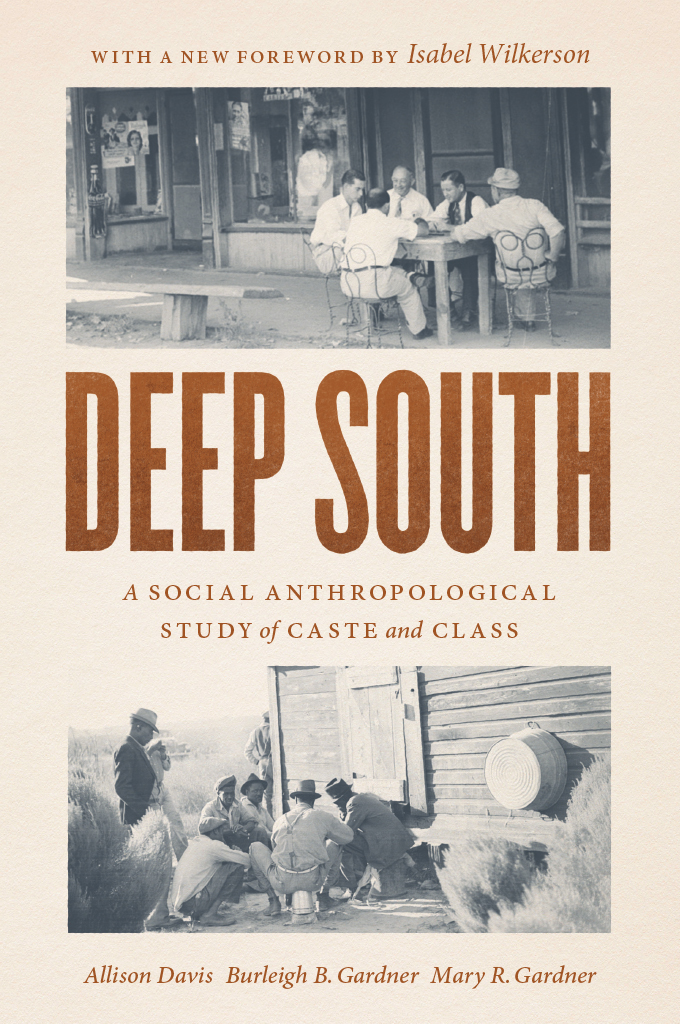
Deep South
Deep South
A Social Anthropological Study of Caste and Class
Allison Davis
Burleigh B. Gardner
Mary R. Gardner
Enlarged Second Edition, with a New Foreword by Isabel Wilkerson
The University of Chicago Press
Chicago and London
The University of Chicago Press, Chicago 60637
The University of Chicago Press, Ltd., London
1941, 1965 by The University of Chicago
Foreword 2022 by Isabel Wilkerson
All rights reserved. No part of this book may be used or reproduced in any manner whatsoever without written permission, except in the case of brief quotations in critical articles and reviews. For more information, contact the University of Chicago Press, 1427 E. 60th St., Chicago, IL 60637.
Published 2022
Printed in the United States of America
31 30 29 28 27 26 25 24 23 22 1 2 3 4 5
ISBN-13: 978-0-226-81798-9 (paper)
ISBN-13: 978-0-226-81799-6 (e-book)
DOI: https://doi.org/10.7208/chicago/9780226817996.001.0001
Library of Congress Cataloging-in-Publication Data
Names: Davis, Allison, 19021983, author. | Gardner, Burleigh B. (Burleigh Bradford), 1902 author. | Gardner, Mary R., author. | Wilkerson, Isabel, writer of foreword. | Warner, W. Lloyd (William Lloyd), 18981970, writer of introduction.
Title: Deep south : a social anthropological study of caste and class / Allison Davis, Burleigh B. Gardner, Mary R. Gardner.
Description: Enlarged second edition / with a new foreword by Isabel Wilkerson. | Chicago ; London : The University of Chicago Press, 2022. | Includes bibliographical references and index.
Identifiers: LCCN 2021057700 | ISBN 9780226817989 (paperback) | ISBN 9780226817996 (ebook)
Subjects: LCSH: African AmericansSouthern States. | Social classesSouthern States. | Southern StatesSocial conditions. | Southern StatesEconomic conditions.
Classification: LCC HN79.A2 D3 2022 | DDC 305.5/12208996073075dc23/eng/20211217
LC record available at https://lccn.loc.gov/2021057700
 This paper meets the requirements of ANSI / NISO Z39.48-1992 (Permanence of Paper).
This paper meets the requirements of ANSI / NISO Z39.48-1992 (Permanence of Paper).
To Edwin R. Embree
SOCIAL ENGINEER WITH A FAITH
IN THE SCIENCES OF HUMAN BEHAVIOR
1941
We thank the University of Chicagoparticularly Walter Massey, emeritus trustee and special advisor to the president, and Professor Amanda Woodward, dean of the Division of Social Sciencesfor the universitys deep commitment to honoring the life and work of W. Allison Davis. We express our profound thanks to David Varel for tirelessly documenting in his elegant work The Lost Black Scholar so much we did not know about the lives and legacies of Elizabeth Stubbs Davis and W. Allison Davis. And lastly, we thank Isabel Wilkerson for her magnificent foreword to this new edition of Deep South, for championing Deep South as one of the most important works on race in America, and for extolling the brilliance and courage of our remarkable parents.
Allison S. Davis
Gordon J. Davis
2022
Contents
Relation between the Caste System and the Class System in the Deep South
The Social Perspectives of the Social Classes
Frequency of Interparticipation of a Group of Women in Old City: 1936Group I
Frequency of Interparticipation of a Group of Women in Old City: 1936Group II
Types of Members of, and Relationships between, Two Overlapping Cliques
Distribution of 443 White Clique Members by Social Class
Interparticipation of Clique Groups I and II in an Age-Class Configuration
The Participation Line in an Age-Class Configuration
Scope of Possible Participations of an Upper-Middle-Class Woman
Social Participation through an Indirect Relation: Up and Older
Circulation of Money on a Plantation through a Manager-Patriarch-Treasurer
Relative Status of Negroes and Whites in Non-economic Structures of the Society
Relative Status of Negroes and Whites in Economic Structures of the Society
Social Characteristics of a Sample of 43 White Participation Groups in Old City: Clique Group I
Social Characteristics of a Sample of 43 White Participation Groups in Old City: Clique Group II
Analysis of the Social Participation of the Female Members of 8 White Cliques: Ages 2039
Distribution of 443 Individuals in Clique Groups I and II by Age Group and Social Class
Age Distribution of the Upper-Middle-Class and Lower-Middle-Class Members of Clique Groups I and II
Isabel Wilkerson
I have been walking in the shadow of Allison Davis for much of my life, often beyond the level of conscious awareness, growing up in the same city as he (Washington, D.C.), establishing my writing career where he had built his academic one (Chicago), ultimately drawn, in our respective eras, to the lives and traumas of the survivors of Jim Crow, both of us having been born to survivors who suffered setbacks that would define the course of our lives and instill a near-singular focus on methodical, countervailing achievement.
There I was in the 1990s, working on what would become The Warmth of Other Suns, tracking down the graying pensioners who had fled the Jim Crow South during the Great Migration, the rural and small-town folk who had whispered dread of southern pogroms, heard of uncles or neighbors lost to lynchings, who themselves had been cheated of wages at settlement, condemned to forced subservience in what scholars who studied the South in that nadir would come to call a caste system.
There I was in the final laps of the twentieth century doing participant observation with the same cohort of people he had lived among as he did his ethnographic fieldwork for Deep South exactly sixty years before. He had captured them on the cusp of life; I had reached them at the close. Might we have talked to the same people? Were we, a lifetime apart, plowing the same karmic field? How is it that I would come to see him as a spiritual father, a man with the same stoic and upright bearing, the perseverance overlain with the dejection of denied opportunity that I saw in my own father? How was it that I would see so much of myself in him and take up a calling to continue his mission?
*
It was in the fall of 1933, as dust winds choked the central plains and the country sank deeper into the Great Depression, that two Ivy Leaguetrained couplesone black, one whiteundertook a perilous, essentially undercover mission to study the social order of the American South. They were entering hostile and alien territory where they would have to adhere to the restrictions and protocols of the feudal world they would be researching and where they could not let on to anyone the true nature of their intentions.
Allison Davis was an impeccably tailored academic with the sculpted, square-jawed face of a movie star. His wife, Elizabeth Stubbs Davis, was a doctors daughter who had graduated from Mount Holyoke. The two of them were fresh from their additional studies at Harvard and Radcliffe. He was a young anthropologist with two masters degrees and had a wealth of experience abroad but, once in Mississippi, could not in any way act like it. They had to conceal their inner selves to survive.
The couple had chosen to make the personal sacrifice and to risk their lives for the greater good of documenting the structure of human division, a mission that would practically render them double agents. Urbane and bespectacled though he was, Allison Davis decided it best to keep a gun in the glove compartment to protect himself and his wife if it came to it.
Next page
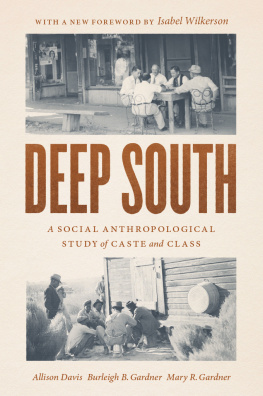

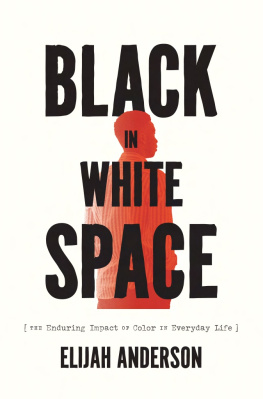
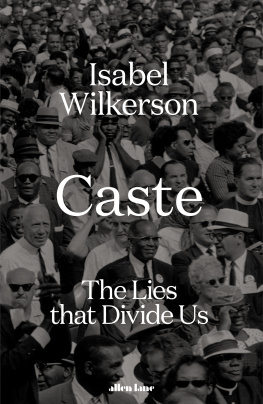
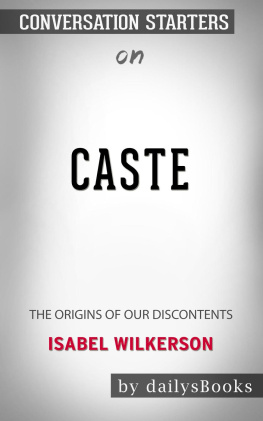
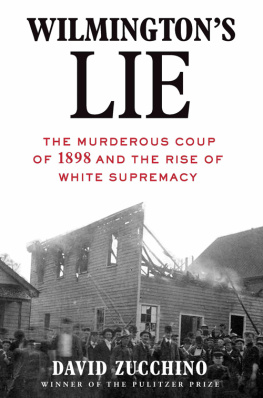
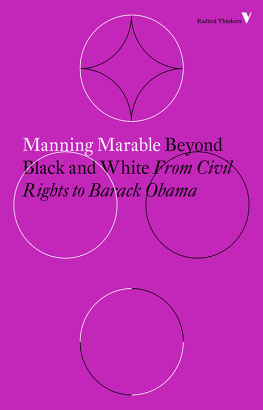
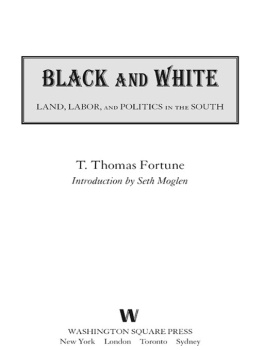
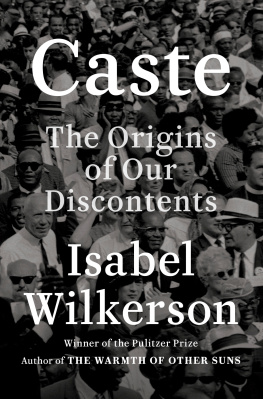
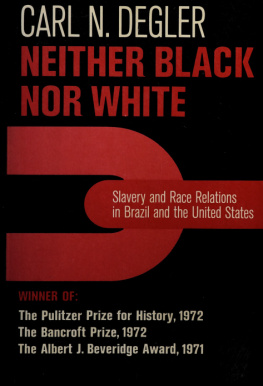
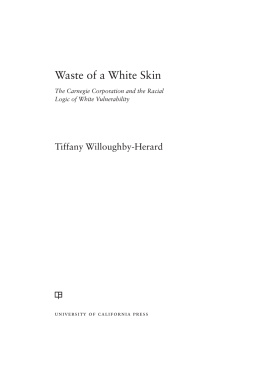
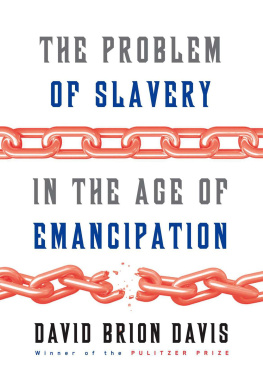

 This paper meets the requirements of ANSI / NISO Z39.48-1992 (Permanence of Paper).
This paper meets the requirements of ANSI / NISO Z39.48-1992 (Permanence of Paper).